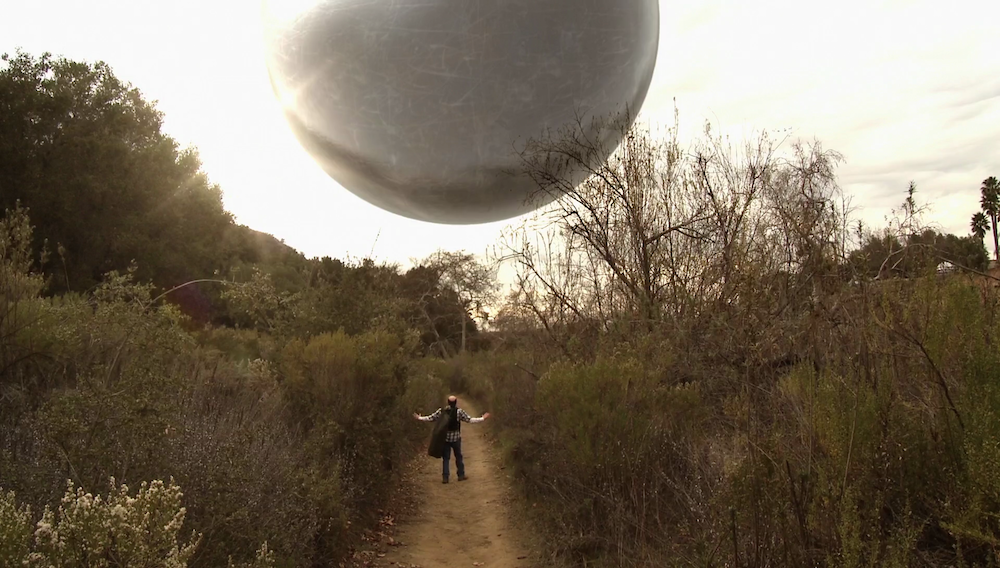
Even given the best of circumstances, coming to a satisfactory end of the Phantasm series would’ve been a tall order (no pun intended), and not just because the original’s stature only continues to grow among genre fans. All four films in the bunch are strange to the point of general incoherency (though I mean that entirely in a good way), often tonally at every place on the map, convolutedly plotted and so often clearly created out of what was available and not what would be ideal. Their shambolic imperfection is both their charm and their difficulty, giving each film its own distinct dreamlike air, almost improvisatory in form and flowing into whatever form Don Coscarelli’s third eye saw that day. In fact, they would each probably seem like entries in totally different series were it not for the regular appearance of Reggie the balding ice cream salesman turned still balding action film badass and, of course, Angus Scrimm’s inimitable Tall Man. Even given Coscarelli’s wonderful track record and handle on the material, I was hesitant when I first heard about Phantasm: Ravager so long ago that I think the news was delivered by telegram.
Now, after a change in director, we have it, the final piece of the purposefully unsolvable Phantasm puzzle, and it’s…kinda disappointing. Mostly underwhelming. After a quartet of films that were, at the very least, fascinatingly strange, Ravager‘s long sigh of overdone CGI and weirdly amateurish camerawork plays as alternately frustrating and comforting, a mixed bag of a movie that I found mostly tedious but also emotionally resonant. As a send off to both the series and Angus Scrimm himself, it may make Phantasm devotees a bit misty-eyed, but as a movie, not a lot of it works the way it should. Make no mistake about it, despite an opening recap of the previous four films intended to bring in newcomers, I can’t imagine really any of Ravager working on anyone but the die-hards who can pull out references to specific shots, music cues, and sound effects. Essentially, your personal feelings on Phantasm will dictate whether you get anything out of seeing Reggie off into the sunset, not the film itself, because as a piece of art it is too weak to lift its emotional baggage. It’s a movie, essentially, about getting old and dying, but that only works on a meta level for the previously invested.
Things start off on a wrong note, as the visual ugliness is apparent from the first frame. Now, the Phantasm films were never big budget visual spectacles, but they used their limitations as advantages, finding what shots work for the technical level available instead of trying to ape the look of other films made in other circumstances. So much of the original’s brilliance lies in its incredibly foreign feel, displacing the audience with framing, cuts, and lighting that are designed specifically to match what Coscarelli was working with, and the later films followed suit; there’s nothing inherently ugly about bad film stock as long as you don’t try to use it like Hollywood technicolor. Coscarelli’s masterstroke was shooting each film as if in a dream. What’s so unfortunate about Ravager is that director David Hartman tries to be too ordinary, and his digital camerawork is just plain hideous. You can’t use lower grade digital cameras like they’re film cameras; the images just don’t work the same. As directors like Michael Mann have made so clear, digital can excel when its strengths and weaknesses are taken into account, but the amateurism I referenced earlier is due to Hartman’s unwillingness to shoot in non-traditional ways. This extends to the films editing which, besides its free flowing between settings, is so stubbornly normal, all match cuts, establishing shots, and shot-reverse-shot dialogue exchanges that bring this ethereal franchise, visually at least, far too close to earth.
The shame is that the actors and the script are more than up for the challenge of holding up a better film. Focusing on Reggie becoming essentially unstuck in reality, the story naturally and gracefully swirls a group of locations together into a sort of stacked universe of settings, with Reggie the unmoving anchor as dimensions swirl around him. This is where the tone works- you genuinely feel unmoored, and Reggie’s confusion acting as an explicit metaphor for dementia adds real world resonance to many of the film’s best moments (no one on hand is a spring chicken anymore, with Reggie Bannister himself in his 70’s now, and everyone’s age adds perhaps unearned extra-textual pathos to the proceedings). Bannister and Scrimm give the film a weary and melancholy weight that serves as this entry’s specific mood. Over five films, they’ve been battling for so long that both seem, at various times, to have almost lost their ability to keep going, and these moments are genuinely powerful, but still nagging–I cared about them because I care about Reggie, not because the film gave me a reason to.
Essentially, that’s the film as a whole. If, like me, you shed a tear when Angus Scrimm died, you’ll get something out of this, even if you’ll spend a good chunk of the rest of the movie frustrated or uninterested. However, if you don’t know your sentinels from your Dr. Jebediah Morningsides, then you’ll mostly end up turned off by the visuals and inconsistent storytelling. It’s not that trading in a viewer’s fondness for a franchise is inherently bad, it’s that you have to have more than just that, and Ravager rarely does. Essentially, that leaves this review to be mostly meaningless, since the kind of person who will get something out of Phantasm: Ravager would have seen it regardless of my stance, and neophytes likely wouldn’t have stayed past the cold open. As one of the people who rabidly awaited this thing for years, I get it, and I appreciate the closure. I just would’ve appreciated a good film more.
—
Directed by David Hartman; written by David Hartman and Don Coscarelli; starring Reggie Bannister, A. Michael Baldwin, Bill Thornbury, and Angus Scrimm; 87 minutes.



 Derek
Derek
 Isabelle
Isabelle